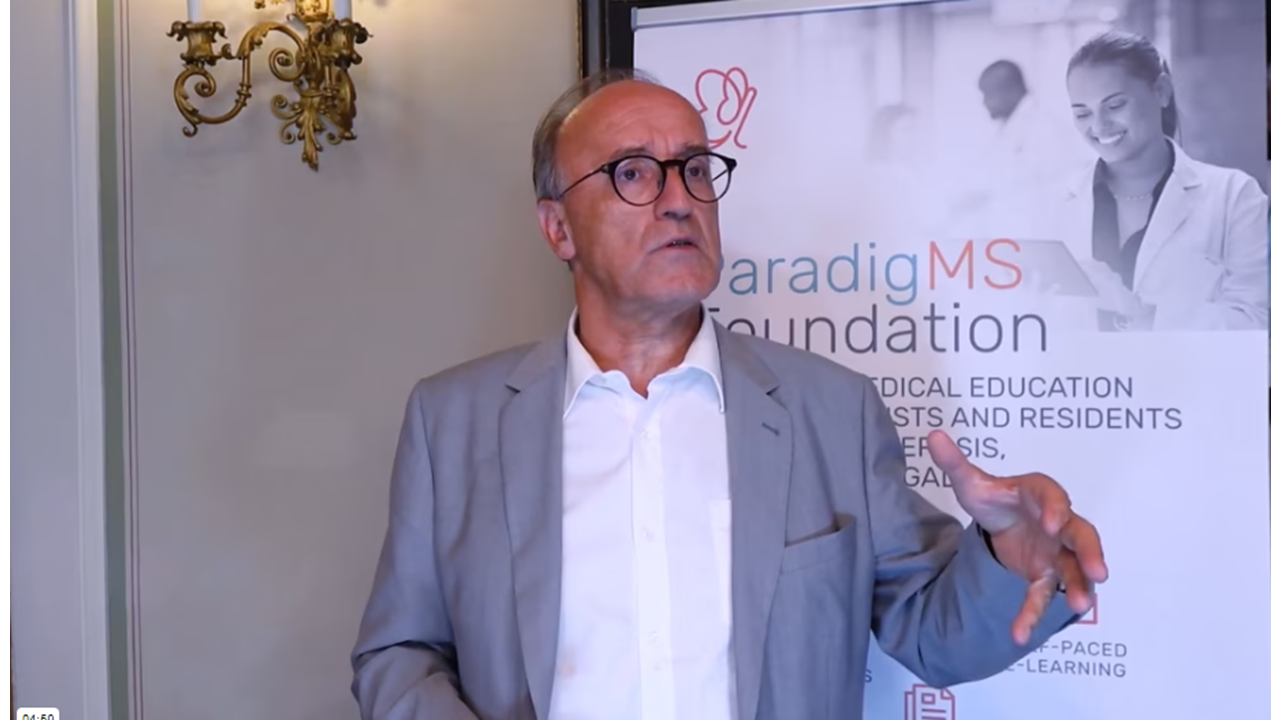Managing MS in Individuals Aged 55 and Above
Managing MS in older adults requires a tailored approach. In his latest presentation, Prof. Patrick Vermersch explores age-specific MS challenges, from immunosenescence and progressive disease to treatment strategies and discontinuation considerations.
Key takeaways
- Aging and Disease Progression: MS in older adults often shifts from a relapsing to a progressive form, with compartmentalized inflammation and microglial activation playing a central role.
- Immunosenescence Considerations: Aging impacts immune function, increasing the risk of infections, especially with prolonged immunosuppressive therapy, necessitating a careful benefit-risk assessment in older patients.
- Treatment Efficacy Variability: Many DMTs show reduced efficacy in older MS patients, emphasizing the importance of individualized treatment plans based on age and disease stage.
- DMT Discontinuation Strategy: For some older patients, discontinuing DMTs may be an option when criteria such as stable disease activity (NEDA) and low EDSS are met, with careful monitoring afterward.
- Comprehensive Care Approach: Managing MS in older adults requires addressing not only MS-specific symptoms but also age-related comorbidities and general health factors for optimal quality of life.
The presentation
You’ll need to subscribe to our platform or log-in to see the presentation.
The biography of the expert

Patrick Vermersch
Vice-president of Research in the fields of Life and Health Sciences at the University of Lille






